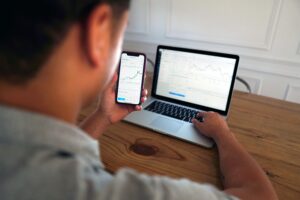The process of applying for a mortgage when you are self-employed is a little more difficult than if you were an employee. However, it’s still a perfectly achievable goal, especially if you have been self-employed for two or more years, and can provide evidence of a regular income.
Lenders will class you as self-employed if you own more than 20 to 25% of a business which provides your main income, or you are a sole trader, freelancer, or director. To make sure that you are given the fullest and most up to date advice, it’s advisable to consult the services of a specialist self-employed mortgage broker.
Here are some things to consider in the meantime, to make sure that you are as well prepared as you can be.
Save as bigger deposit as possible
Most mortgage lenders will require a minimum deposit of 10-20%, although there are government schemes to support 95% mortgages, and other initiatives such as Shared Ownership and Help to Buy. The larger your deposit, the lower your repayments will be, and your lender is likely to offer you lower rates of interest.
Have a look at your income and outgoings, to see where you could make savings, and put any money you manage to save into your deposit fund. If you are aged between 18-39, look into the Lifetime ISA, which allows you to save up to £4,000 each tax year, and the government will top it up by 25%, if it is to be used to buy a house.
Self-employed mortgages are just the same product as those offered to employed people, so it doesn’t automatically mean that you will pay more, but the deposit size will make a difference to whether you can secure a favourable deal.
Appoint an accountant
To be approved for a mortgage, you will usually need to provide a minimum of two years of accounts which have been signed off by a certified or chartered accountant. The best scenario is a steady or increasing average profit over a number of years, but evidence of potential new income sources may be acceptable, even if your earnings pattern is uneven.
Remember that just because one or two lenders turn you down, it doesn’t mean that they all will, as they use different assessment criteria.
Check your credit rating
Make sure you are on the electoral roll as this will help to confirm your identity. If you can, pay off any outstanding debts and don’t take on any new financial commitments. Go through your finances and close down any unused subscriptions or dormant direct debits, at least one year before you apply for a mortgage.
Complete SA302 forms
Most mortgage brokers will request copies of your SA302 forms, dating back two or three years. These forms show your annual tax calculations, and can be printed from your online tax account if you use one. If you submit a paper tax return, you will need to request them from the HMRC.





